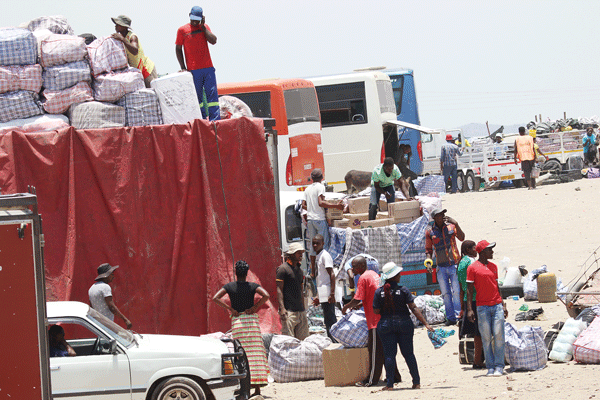
INFORMAL traders have been urged to desist from buying fake COVID-19 certificates to avoid the inconvenience of being turned back at the ports of entry following the reopening of borders.
By NQOBANI NDLOVU
Borders reopened yesterday to private vehicles and pedestrians after several months of closure meant to minimise infection and spread of COVID-19.
Travellers are required to obtain a medical certificate showing that they are clear of COVID-19. The polymerase chain reaction (PCR) COVID-19 tests must be taken within 72 hours of travel.
However, reports abound of fake certificates being sold by unscrupulous agents.
Bulawayo Vendors and Informal Traders Association (BVTA) executive director Michael Ndiweni urged members of the association to shun fake certificates to avoid inconveniences at the ports of entry.
“We urge our members to be vigilant not to be lured to buy fake PCR COVID-19 certificates,” Ndiweni said.
A PCR COVID-19 test attracts a fee of about US$50 while fake certificates can be bought for less.
- Chamisa under fire over US$120K donation
- Mavhunga puts DeMbare into Chibuku quarterfinals
- Pension funds bet on Cabora Bassa oilfields
- Councils defy govt fire tender directive
Keep Reading
“We have gathered that there are some unscrupulous people who pounce on unsuspecting informal cross-border traders (ICBTs) and sell them fake certificates that can leave them stranded at the border or in foreign land.
“The worst part is that one becomes complicity in spreading the virus to your family or friends and we all know the consequences,” he said.
Ndiweni said the cost associated with cross-border trading was now headache following the reopening of borders, urging informal traders to consider joint efforts to minimise costs.
“We urge our members to consider bulking when either exporting locally made goods or importing goods to reduce the costs on COVID-19 certificates for which individuals cough out an arm and a leg. This will help in reducing costs and logistics,” Ndiweni said.
“Our hearts are with ICBTs who are feeling the pinch of COVID-19 certificates that are beyond many struggling women and men. The cost of compliance is now a burden to many.”
Follow Nqobani on Twitter @NqobaniNdlovu











